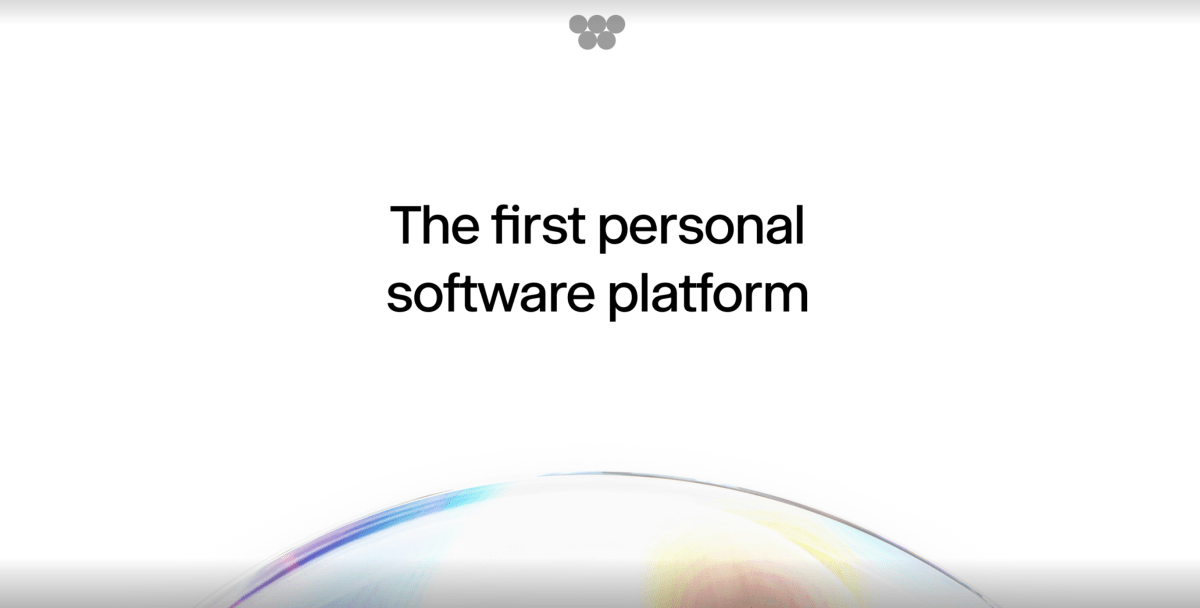Technology
Replika Founder Eugenia Kyuda Secures $20M for New App Venture

Eugenia Kyuda, the founder of the successful AI companion platform Replika, has launched a new venture called Wabi. Kyuda’s latest startup has already attracted significant attention, raising $20 million in pre-seed funding. Wabi, which Kyuda describes as the “YouTube for apps,” allows users to create and share mini applications using simple prompts. This innovative platform aims to democratize app development, making it accessible to individuals without coding experience.
Launched in beta in September 2023, Wabi serves as a social platform where users can quickly design applications tailored to their everyday needs. The platform’s unique selling point is its integrated approach, which combines app creation, discovery, and hosting, eliminating the need for traditional app stores. Kyuda envisions a future where personalized software becomes a standard part of daily life, enabling users to generate tools that enhance their personal and social experiences.
The impressive pre-seed funding comes from a distinguished group of investors, including Naval Ravikant, co-founder of AngelList, Garry Tan, CEO of Y Combinator, and Justin Kan, co-founder of Twitch. Other notable investors include Amjad Masad, CEO of Replit, Akshay Kothari, co-founder of Notion, DJ Seo, co-founder of Neuralink, and Sarah Guo, founder of Conviction. Anish Acharya, a general partner at Andreessen Horowitz, praised Kyuda’s foresight in the AI sector, stating, “It’s very rare to find someone who’s got a track record for predicting what consumers will want.”
Kyuda’s entry into the app development landscape coincides with a growing interest in no-code and low-code platforms. Startups like Cursor and Lovable have gained traction with venture capitalists, while tools from companies such as Emergent, Replit, and Bloom are empowering non-technical users to create applications through straightforward prompts. Wabi differentiates itself by providing a comprehensive platform that simplifies the creation process for users.
Kyuda explained her vision for Wabi during a recent appearance at Disrupt, stating, “This was really made to help people who have nothing to do with coding or the tech world to very quickly create apps from their daily lives.” Users can input prompts like “build me an AI therapy app,” and Wabi will generate an application without requiring any coding skills. The platform also recently added social features, enabling beta users to like, comment, and remix existing apps, fostering a sense of community.
Social engagement is central to Wabi’s design. Kyuda emphasized, “We believe that the social layer is absolutely critical because it allows for so much more creativity and discovery.” The platform’s Explore page showcases popular and recent apps, which Kyuda plans to enhance with algorithmic recommendations in future updates.
Wabi’s functionality parallels offerings from established platforms like ChatGPT and Quora’s Poe, which also allow users to build applications using prompts. Wabi streamlines this process by handling technical aspects such as icon creation, database setup, and user interface design. Users can also customize their applications by selecting foundational models for AI-generated components.
Despite its innovative features, Wabi is still in its early stages. Kyuda acknowledged that users may encounter technical issues, such as bugs that need debugging. She noted that part of the funding will be allocated to building a robust product team and refining the user experience. Kyuda is committed to avoiding advertisements on the platform, advocating for a user-friendly environment. “I built Replika and never had any ads,” she remarked. “I think ads just create a pretty bad user experience.”
Looking ahead, Acharya believes Wabi has the potential to evolve significantly as it gains traction. He envisions a future where users can create software that retains relevance over time, contrasting with the fleeting nature of video content. “Software has compounding value,” he explained, suggesting that successful applications could remain useful long after their creation.
Kyuda’s vision for Wabi aligns with a broader trend towards “disposable software,” where users can effortlessly create and discard applications as needed. As the platform continues to develop, it aims to restore the creativity and individuality reminiscent of the early internet, moving away from the uniformity of current social media platforms. “The opportunity with Wabi is it’s going to restore some of that punk, strange, early 90s web ethos,” Kyuda concluded.
As Wabi prepares for its official launch, it stands poised to reshape how individuals interact with technology, making app development a social endeavor accessible to all.
-

 Top Stories1 month ago
Top Stories1 month agoRachel Campos-Duffy Exits FOX Noticias; Andrea Linares Steps In
-

 Top Stories1 week ago
Top Stories1 week agoPiper Rockelle Shatters Record with $2.3M First Day on OnlyFans
-

 Top Stories6 days ago
Top Stories6 days agoMeta’s 2026 AI Policy Sparks Outrage Over Privacy Concerns
-

 Sports6 days ago
Sports6 days agoLeon Goretzka Considers Barcelona Move as Transfer Window Approaches
-

 Top Stories1 week ago
Top Stories1 week agoUrgent Update: Denver Fire Forces Mass Evacuations, 100+ Firefighters Battling Blaze
-

 Top Stories1 week ago
Top Stories1 week agoOnlyFans Creator Lily Phillips Reconnects with Faith in Rebaptism
-

 Top Stories6 days ago
Top Stories6 days agoWarnock Joins Buddhist Monks on Urgent 2,300-Mile Peace Walk
-

 Entertainment6 days ago
Entertainment6 days agoTom Brady Signals Disinterest in Alix Earle Over Privacy Concerns
-

 Top Stories1 week ago
Top Stories1 week agoOregon Pilot and Three Niece Die in Arizona Helicopter Crash
-

 Top Stories4 days ago
Top Stories4 days agoCBS Officially Renames Yellowstone Spin-off to Marshals
-

 Health2 months ago
Health2 months agoTerry Bradshaw Updates Fans on Health After Absence from FOX NFL Sunday
-

 Sports4 days ago
Sports4 days agoSouth Carolina Faces Arkansas in Key Women’s Basketball Clash


